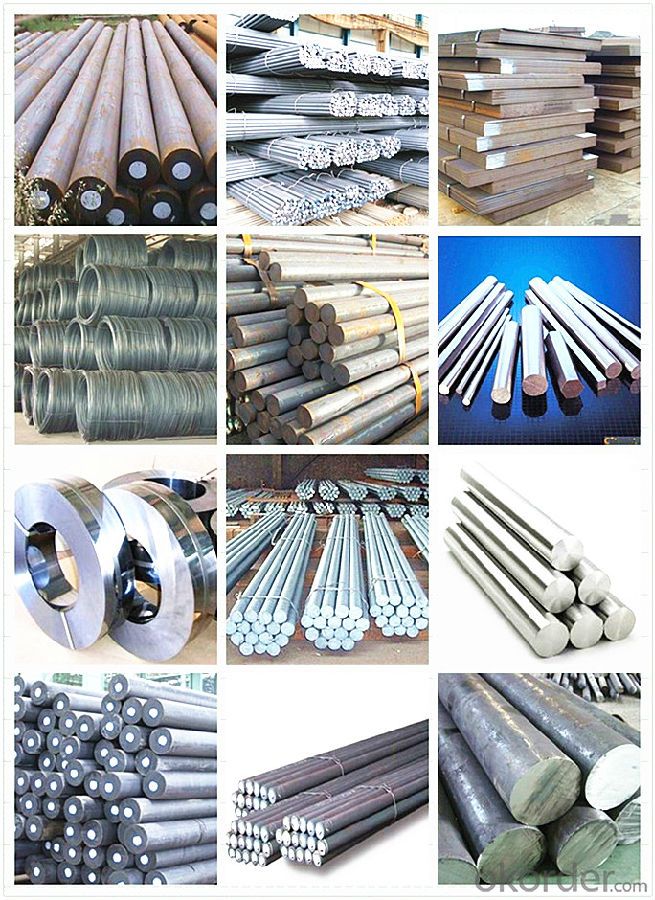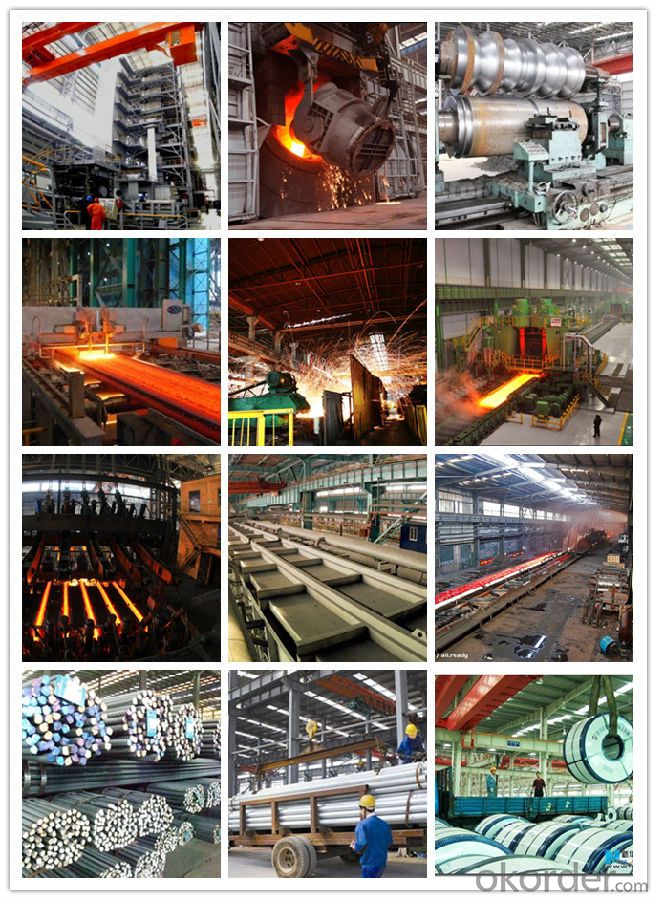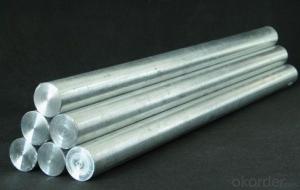Special Steel 310 Stainless Steel Round Bar
- Loading Port:
- China main port
- Payment Terms:
- TT OR LC
- Min Order Qty:
- 30 m.t.
- Supply Capability:
- 10000 m.t./month
OKorder Service Pledge
OKorder Financial Service
You Might Also Like
Item specifice
Product information:
Standard | ASTM | ||||||||||
Grade | astm310 | ||||||||||
MOQ | 1 Metric Ton | ||||||||||
Diameter | 10mm~1500mm | ||||||||||
Length | 6m,12m or as required. | ||||||||||
Diameter Tolerance | As required | ||||||||||
Condition of delivery | Hot rolled,Cold Rolled or as required. | ||||||||||
Chemical Composition(%) | |||||||||||
C | Si | Mn | P | S | Cr | ||||||
≤0.25 | ≤1.50 | ≤2.00 | ≤0.045 | ≤0.03 | 24.00-26.00
| ||||||
Ni | |||||||||||
19.00-22.00 | |||||||||||
Mechanical Properties(In Quenching and Tempering) | |||||||||||
Tensile strength | Yield strength | Elongation | Reduction in Area | Impact | Hardness | ||||||
(σb/MPa) | (σs/MPa) | (δ5/%) | (ψ/%) | (J) | (HB) | ||||||
≥205 | ≥520 | ≥40 | ≥50 | - | ≤187 | ||||||
Product Show:

Workshop Show:

Shipping
1. FedEx/DHL/UPS/TNT for samples, Door-to-Door;
2. By Air or by Sea for batch goods, for FCL; Airport/ Port receiving;
3. Customers specifying freight forwarders or negotiable shipping methods!
Delivery Time: 3-7 days for samples; 5-25 days for batch goods.
Payment Terms
1.Payment: T/T, L/C, Western Union, MoneyGram,PayPal; 30% deposits; 70% balance before delivery.
2.MOQ: 1pcs
3.Warranty : 3 years
4.Package Informations: 1) EXPORT, In 20 feet (GW 25 ton) or 40 feet Container (GW 25 ton)
2)as customer's requirement
Why choose us?
(1) The leading exporter in China special steel industry.
(2) Large stocks for various sizes, fast delivery date.
(3) Good business relationship with China famous factories.
(4) More than 7 years steel exporting experience.
(5) Good after-sales service guarantee.
- Q:What are the different passivation techniques used for special steel?
- There are several passivation techniques used for special steel, including chemical passivation, electrochemical passivation, and mechanical passivation. Chemical passivation involves treating the steel surface with acids or other chemical solutions to remove impurities and create a passive film that protects against corrosion. Electrochemical passivation utilizes an electrical current to enhance the formation of the protective oxide layer. Mechanical passivation involves processes like abrasive blasting or grinding to remove contaminants and improve the surface finish. These techniques are commonly employed to enhance the corrosion resistance and durability of special steel.
- Q:What are the limitations of using special steel in marine environments?
- Special steel, while highly durable and resistant to corrosion, does have its limitations when used in marine environments. One of the main limitations is its susceptibility to pitting corrosion. Due to the presence of chloride ions in seawater, special steel can develop localized corrosion known as pitting, which can weaken the material and compromise its structural integrity. Furthermore, special steel may also be prone to stress corrosion cracking in marine environments. When exposed to tensile stress and corrosive agents, such as saltwater, the material can develop small cracks that propagate over time, leading to catastrophic failures. This makes it crucial to carefully monitor and manage the stress levels to prevent such occurrences. Additionally, special steel can be affected by galvanic corrosion when in contact with different metals or alloys in a marine environment. This occurs due to the electrochemical potential difference between the metals, resulting in accelerated corrosion of the less noble material. This requires careful consideration when selecting other materials for use in conjunction with special steel to avoid galvanic corrosion. Moreover, the cost of special steel can be significantly higher compared to other materials used in marine environments. This can pose a limitation, especially for projects with budget constraints. The higher costs of special steel may make it less financially viable for certain applications, leading to the exploration of alternative materials for marine applications. Lastly, the weight of special steel can also pose limitations in marine environments. Its density can contribute to increased weight, which affects the buoyancy and overall stability of marine vessels. This can impact the performance and maneuverability of ships and offshore structures, necessitating careful engineering and design considerations. In conclusion, while special steel offers excellent durability and corrosion resistance, it does have limitations when used in marine environments. Pitting corrosion, stress corrosion cracking, galvanic corrosion, higher costs, and weight considerations are some of the factors that need to be carefully managed and accounted for when utilizing special steel in marine applications.
- Q:How does special steel contribute to the tool manufacturing industry?
- Special steel plays a crucial role in the tool manufacturing industry as it offers several advantages that enhance the quality, performance, and durability of tools. Firstly, special steel is known for its exceptional strength and toughness, which makes it ideal for manufacturing high-quality tools that can withstand heavy usage and extreme conditions. In addition to strength, special steel also offers excellent wear resistance. Tools made from special steel can retain their sharpness and cutting edge for a longer period, reducing the need for frequent re-sharpening or replacement. This not only saves time and effort but also increases productivity in various industries that heavily rely on tools, such as construction, automotive, and aerospace. Moreover, special steel can be heat-treated to achieve specific properties, such as hardness, which is vital for tools like drills, saws, and blades. This heat treatment process allows manufacturers to tailor the steel's characteristics to meet the specific requirements of different tools, ensuring optimal performance and effectiveness. Special steel also provides corrosion resistance, an essential feature for tools that may be exposed to moisture, chemicals, or harsh environments. By preventing rust and corrosion, special steel helps to prolong the lifespan of tools, reducing maintenance costs and ensuring their reliable performance over time. Furthermore, the versatility of special steel allows manufacturers to create tools with complex shapes and designs. This flexibility opens up opportunities for innovation and the development of specialized tools that cater to unique applications and industries. Special steel can be easily machined, welded, and formed into various tool designs, enabling manufacturers to create efficient and ergonomic tools that offer improved handling and user comfort. In summary, special steel significantly contributes to the tool manufacturing industry by providing strength, wear resistance, heat treatability, corrosion resistance, and versatility. These properties enable the production of high-quality tools that are durable, reliable, and efficient, meeting the demands of diverse industries and enhancing productivity.
- Q:Can special steel be used in the marine industry?
- Yes, special steel can be used in the marine industry. Special steels such as stainless steel or corrosion-resistant alloys are commonly used in the marine industry due to their high strength, durability, and resistance to corrosion in harsh marine environments. These materials are utilized for various applications including shipbuilding, offshore structures, and marine equipment to ensure long-lasting performance and safety at sea.
- Q:How does stainless steel contribute to the construction industry?
- Stainless steel contributes to the construction industry by providing durability, corrosion resistance, and aesthetic appeal. Its strength and resistance to rust make it ideal for structural components, such as beams, columns, and reinforcement bars. Stainless steel is also commonly used for architectural elements like cladding, handrails, and fixtures due to its sleek appearance and low maintenance requirements. Overall, stainless steel enhances the longevity and aesthetics of buildings, making it a valuable material in the construction industry.
- Q:Can special steel be used in the aerospace industry?
- Yes, special steel can be used in the aerospace industry. Special steel alloys, such as stainless steel or titanium alloys, are commonly utilized in the aerospace industry due to their high strength-to-weight ratio, corrosion resistance, and ability to withstand extreme temperatures and pressures. These properties make special steel suitable for various components in aircraft and spacecraft manufacturing, including structural elements, engine parts, landing gears, and fasteners.
- Q:Can special steel be used in marine applications?
- Yes, special steel can be used in marine applications. Special steel, such as stainless steel or corrosion-resistant steel, is commonly used in marine environments due to its high resistance to corrosion, saltwater, and extreme weather conditions. It provides durability and longevity, making it suitable for various marine applications like shipbuilding, offshore structures, and marine equipment.
- Q:How does special steel perform in hot forging processes?
- Special steel is specifically designed to withstand high temperatures and perform well in hot forging processes. When exposed to extreme heat, special steel maintains its strength and hardness, making it ideal for use in hot forging applications. One of the main advantages of special steel in hot forging is its excellent heat resistance. It can withstand high temperatures without losing its structural integrity, ensuring that it maintains its desired properties throughout the forging process. This allows for the production of forged components with consistent quality and dimensional accuracy. Furthermore, special steel exhibits good thermal conductivity, which helps to distribute heat evenly during the forging process. This enables efficient heating and reduces the risk of localized overheating or cold spots. The even distribution of heat also contributes to uniform grain structure, which enhances the overall strength and mechanical properties of the forged parts. In addition, special steel possesses excellent wear resistance and toughness, even at elevated temperatures. This ensures that the steel can withstand the significant forces and pressures involved in the hot forging process without easily deforming or failing. The combination of high strength, wear resistance, and toughness allows for the production of forged components that can withstand heavy loads and harsh operating conditions. Moreover, special steel can be easily machined and formed, allowing for intricate designs and complex shapes to be forged. This versatility makes it suitable for a wide range of hot forging applications, including automotive parts, industrial machinery components, and aerospace components. In summary, special steel performs exceptionally well in hot forging processes. Its heat resistance, thermal conductivity, wear resistance, toughness, and machinability make it an ideal material choice for producing high-quality, durable, and complex forged components.
- Q:What are the different methods for joining special steel?
- There are several methods available for joining special steel, which is typically used in applications that require high strength, corrosion resistance, or specific mechanical properties. Some of the most common methods for joining special steel include: 1. Welding: This is the most common method used to join special steel. Different types of welding techniques can be employed, such as arc welding (including shielded metal arc welding, gas metal arc welding, and flux-cored arc welding), resistance welding (spot welding, seam welding), and laser welding. Welding requires the use of filler material to bond the steel pieces together, and it can produce strong and durable joints. 2. Brazing: Brazing involves joining special steel using a filler material (typically a brass or bronze alloy) with a lower melting point than the base steel. The filler material is heated until it melts and flows into the joint, creating a strong bond. Brazing is often used for joining dissimilar metals or when the base steel has a high melting point. 3. Soldering: Similar to brazing, soldering also involves using a filler material with a lower melting point to join special steel. However, soldering typically uses a non-ferrous filler material, such as tin-lead or tin-silver alloys. Soldering is commonly used for joining electronic components or delicate parts that cannot withstand high temperatures. 4. Mechanical Fastening: Special steel can also be joined using mechanical fasteners, such as bolts, screws, rivets, or clips. This method is often used when the joint needs to be easily disassembled, or when welding or brazing is not feasible or desirable. 5. Adhesive Bonding: Adhesive bonding involves using a specialized adhesive or glue to join special steel. This method is suitable for joining thin or delicate steel components or when the joint requires high resistance to vibration or shock. Adhesive bonding can provide a strong and durable bond, but it may not be suitable for high-temperature or high-stress applications. It is important to consider the specific requirements of the application, such as strength, corrosion resistance, temperature resistance, and the desired permanence of the joint, when selecting the appropriate method for joining special steel. Each method has its own advantages and limitations, and choosing the right method will ensure a strong and reliable joint.
- Q:What are the factors that affect the weldability of special steel?
- The factors that affect the weldability of special steel include composition, heat treatment, surface condition, joint design, welding process, and welding parameters.
1. Manufacturer Overview |
|
|---|---|
| Location | |
| Year Established | |
| Annual Output Value | |
| Main Markets | |
| Company Certifications | |
2. Manufacturer Certificates |
|
|---|---|
| a) Certification Name | |
| Range | |
| Reference | |
| Validity Period | |
3. Manufacturer Capability |
|
|---|---|
| a)Trade Capacity | |
| Nearest Port | |
| Export Percentage | |
| No.of Employees in Trade Department | |
| Language Spoken: | |
| b)Factory Information | |
| Factory Size: | |
| No. of Production Lines | |
| Contract Manufacturing | |
| Product Price Range | |
Send your message to us
Special Steel 310 Stainless Steel Round Bar
- Loading Port:
- China main port
- Payment Terms:
- TT OR LC
- Min Order Qty:
- 30 m.t.
- Supply Capability:
- 10000 m.t./month
OKorder Service Pledge
OKorder Financial Service
Similar products
New products
Hot products
Related keywords






























